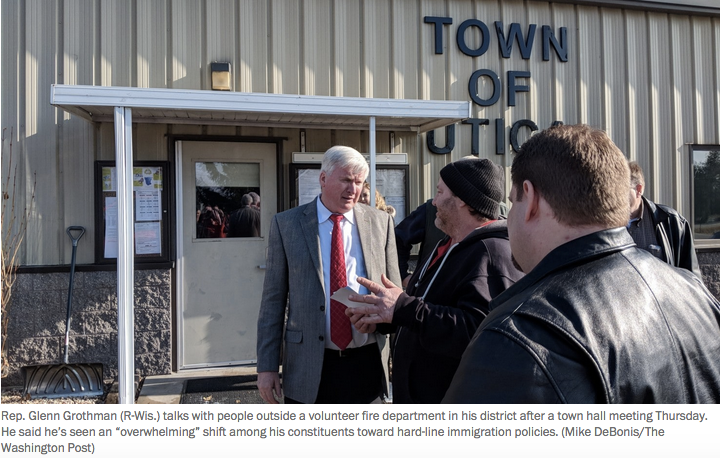A Wisconsin judge on Thursday blocked several lightning-fast actions in December by the state’s Republican-controlled legislature to limit the power of its incoming governor, Democrat Tony Evers, and preserve policies implemented by his predecessor, Scott Walker.
The GOP has tried similar power-stripping efforts after losing statewide elections in North Carolina and Michigan. Outgoing Michigan governor Rick Snyder vetoed some but not all of the bills passed in December. And in 2016, North Carolina’s outgoing Republican governor, Pat McCrory, defeated by Democrat Roy Cooper, signed a number of lame-duck measures, some of which have been successfully challenged in court.
In Wisconsin, the legislature acted in what is known as an “extraordinary session,” called with little notice. It lasted two days and one night and sparked heated protests.
The measures sought to protect, among other things, Republican agenda items such as work requirements for Medicaid and food-stamp recipients, opposition to the Affordable Care Act and limits on early absentee voting in elections. A federal judge blocked the voting measure earlier.
The three bills enacted during the sessions were extraordinary in breadth. One of them gave the legislature powers usually and exclusively reserved for the attorney general, such as approving legal actions by the state and signing off on lawsuit settlements. Another was aimed at reducing the need for highway construction projects to comply with federal laws governing prevailing wages and minority set-asides. Severe restrictions were imposed limiting the availability of Medicaid.
Republicans pushed through 82 of Walker’s appointments to various state boards and commissions.




